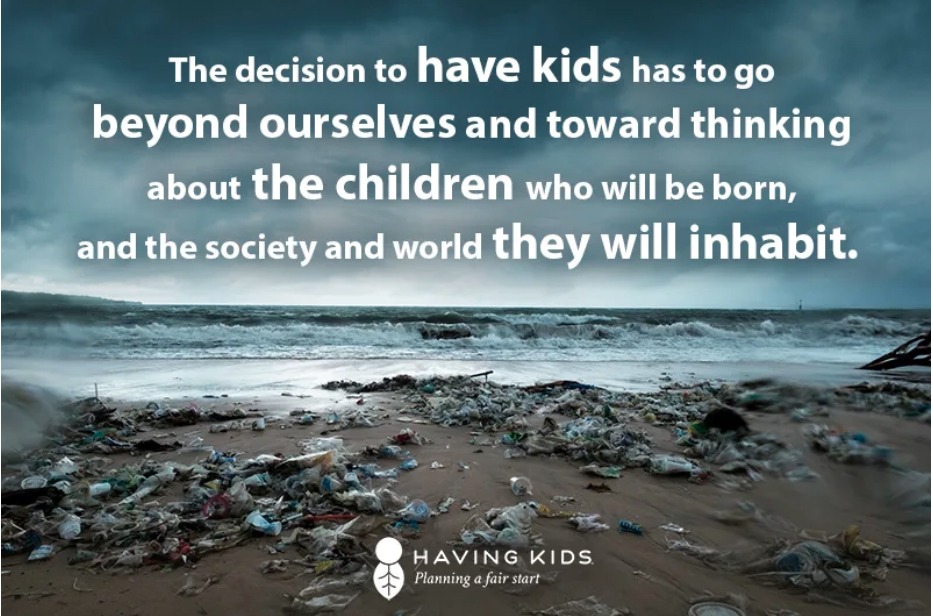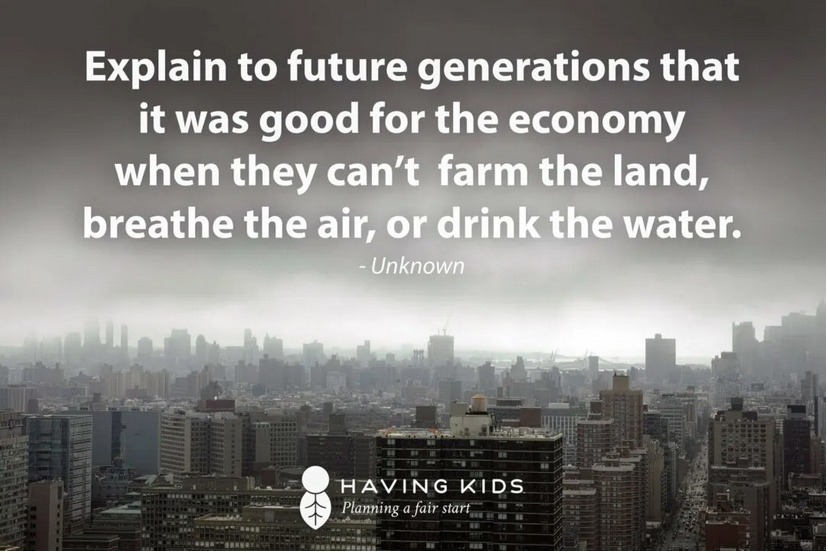The original article was published at Roundtable on March 31, 2022
In the multiple award-winning Lebanese film, Capernaum, the 12 year old protagonist Zain is asked by the judge why he wants to sue his parents. “Because I was born”, said Zain. Through his parents, Zain confronts us adults for, first, turning the world into Capernaum (broadly, a site of chaos), and then, with Kamikaze recklessness, bringing children into it!
Like him, millions of us are born – many accidentally – in circumstances that are unfit, if not harmful. It is this unnecessary yet pervasive human drama and suffering that Zain challenges. Why do we mass-produce ourselves with such little thought? When does our right to procreate begin and where does it end? If not now at this cli-fi like juncture of the Anthropocene, then when else will we shift paradigms?

These provocative questions raised by Zain are answered by human and animal rights lawyer Carter Dillard in his book Justice as a Fair Start in Life. Understanding the Right to Have Children. Unlike the anthropocentric pitch of the population control groups over the last several decades, this work is a deep dive into the ethics and morality of procreation. Besides being a wide leap across disciplinary borders of nonhuman life, neoliberal capitalism, gender and culture. The outcome is a radical epistemology that pivots their disparate politics towards an “upstream” position. From up there, it slices open the substratum of human rights – the right to have a child vis-à-vis the rights of that child.
Through an examination of different laws and international conventions, Dillard performs an astute and unsparing analysis of our right to found a family. Citing legal precedent, philosophy and ethics, he points to unqualified privacy and parental autonomy as the source of our collective misreading. This central flaw, he argues, has led us to a brazen entitlement to procreate without a proportionally emphatic obligation to parent. Procreation – especially within normative, patriarchal marriage – is anything but personal. Rather, it is always, already pre-personal, inter-personal and post-personal, even as the personal is always political. Dillard replaces this foundational delusion of autonomous procreative rights with an expansive definition of reproductive rights with justice—the right to not have children and the responsibility to limit baby-making, to ensure rights of yet-unborn children.
Seen in this light, our right to have a child shifts gears from a parent-centric model of family-making to a child-centered one, from the self to the other, and from human rights to rights for all beings.
Thankfully, the book is not only a visionary thought experiment. It offers concrete policy tools to grant (if not guarantee) personhood to future humans and nonhumans who are the “most vulnerable entities of our moral universe”. The main plank of this alternative vision (aptly called the Fair Start model) is guaranteed minimum income. It is meant to serve as a threshold of resources and opportunities for every newborn, regardless of the socio-economic rank of the parents. This high bar for suitable pre-birth conditions entails three key elements: redistribution of resources for birth equity, parents’ (intellectual-psychological) readiness via delayed birth and a universal ethic of small families. Although these multi-pronged, short-to-long term strategies are designed for the author’s socio-political context, the moral-legal paradigms they emerge from are applicable and valuable in other settings. For example, redistribution of intergenerational wealth and power to eliminate stark economic disparity, birth-delay incentives such as trust funds for children from low-income families and college education for parents can catalyse progressive change in any society. This proposed array of action on the human front is complemented by urgent plans for the non-human side—legislation that restores wilderness by treating nature as ‘nonhuman habitat’, not ‘human resource’. It is this sweeping breadth of understanding that makes the book special, this joining of dots between child, parent and planet, like a journey from Foucault’s bio-power to Bradiotti’s zoe-power.
Reading the book from my feminist, spiritual and childfree perch, the Fair Start idea appeals to all these dimensions. It allays my apprehensions around misogynist and right-wing agendas that can masquerade as ‘family planning’ policies to target a spectrum of (gender, faith, sexual and other) minorities. It calls out our myopic speciesism and replaces it with compassion and dignity for all sentient beings. The light it shines on childfreeness as a legitimate choice also exposes the tight grip of pronatalism on women’s choices, if any, vis-à-vis motherhood.
Where the book could score higher is its readability. It is (justifiably) dense and speaks to the ‘expert’: the policy wonk, the demographer, the human rights wallahs and so on. Yet, the writing could have been more lucid because the subject is crucial for anyone who cares to (rather, dares to) live consciously and deeply. Anyone who does not want to be Zain or his parent.
Carter’s Response: I am indebted to Amrita for making me understand my own work more and agree that there is a need to reformulate the ideas to make them more accessible.
Fair Start could ideally replace the concept of population as more accurate because the former is 1) temporalized to take into account the key stages of our development, and 2) normative and founded on the base value for human rights – relative self-determination, or the capacity to consent to the power/influence of others. In this sense, Fair Start is more about inseparability than intersectionality, given that values cannot be abstracted from our physical creation and existence.
What does this mean in practice? As the book explains, I’ve found no grounds to say that family size limits themselves violate the human rights regime given that Tehran/Cairo (the formulation of which I call isolation modeling) is soft law and all binding law instruments (minus CEDAW which did not create a new right, despite the formulation) use the more limited “found a family” formulation (Rethinking the Procreative Right (yale.edu) (see section on international law) and More Young People Don’t Want Children Because of Climate Change. Has the UN Failed to Protect Them? – Inside Climate News).
Moreover, Tehran/Cairo could never be binding law because human rights have to be read to protect the right in question in perpetuity and the Tehran/Cairo formulation would have allowed large and unsustainable families in the past which would impinge on the right of families of the future to have any children (something happening today as putative parents forgo to protect their would-be children from the population-driven climate crisis).
What’s the resolution of the injustice caused by isolation modeling? By ignoring the fundament of justice itself? We know elites took the money that should, as early as 1948, have gone to women and children, via Chu’s growth Ponzi scheme. We can take that money back and use it for incentivized/entitled Fair Start family planning, as the first and overriding human right: Calling for Voices: Think Your Future Child Deserves a Fair Start? | (fairstartmovement.org). Nothing would be more justly and effectively address the core crises of inequity and ecological degradation we face today.
Amrita Nandy is a research scholar and activist based in New Delhi. Amrita was the Fox International Fellow (2013-2014) from the New Delhi-based Jawaharlal Nehru University. Her research explores women’s non-normative choices vis-a-vis motherhood, mothering ideologies, and the family. Through her work with the UN and non-profits, she has been involved with socio-political campaigns in South Asia. As a freelance journalist, she writes for various English dailies and magazines. Amrita has a Master’s in Women s Studies from the University of Oxford, U.K.
Carter Dillard, author of Justice as a Fair Start in Life, is helping reorient human rights systems around every child’s right to an ecosocial Fair Start in life as the first and overriding human right, fundable with wealth taken from the top of the economic pyramid by all means effective.


